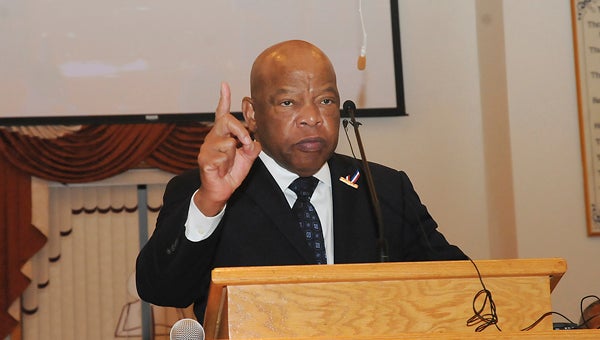Dallas County preparing to add options for 911 services
Published 9:40 pm Wednesday, July 23, 2014
By Scottie Brown
The Selma Times-Journal
Before the end of the year, people needing assistance from 911 will be able to send a text or multimedia messages to dispatchers informing them of their situation.
With the new Alabama Next Generation Emergency Network, dispatchers for 911 will be able to receive short message service and multimedia messaging services from cellphones.
Tracy Williams, the director of public safety communications for Dallas County, said the Dallas County center was already capable of receiving Text Telephone and Telecommunication Device for the Deaf messages, but the Federal Communication Commissions mandated all phone carriers be able to support the sending of SMS and MMS messages to 911 by Dec. 31, 2014.
“They didn’t specify how [they] were to do it, so that gave the phone companies plenty of leeway,” Williams said. “Now they’re all working on different plans to get their information to me.”
The AGEN system will move the system to the digital age and work with two supercomputers in the state to transfer the information to the proper emergency board.
“With the IP system, it’ll come as a digital,” Williams said. “It’ll come just like any other Internet system, but it’s a closed service. To my understanding of ANGEN in Alabama, they have two super computers. One of them is in Huntsville, and one of them is in Montgomery. 911 calls will be routed to their computers there. Those computers will turn around and send the data to us once we get our pipeline here.”
With the servers for the system being housed in Montgomery and Huntsville, Williams said the problem now is how Dallas County will be able to receive the benefits of the AGEN service.
“They have to figure out how to get it here,” Williams said. “It has to be at least 10 megabytes, because when you start sending pictures and videos, that’s a lot of information. So they have to figure out how to get it to me.”
While it might be a large jump in technology, Williams said his facilities were ready for the AGEN system as soon as the center would be able to get it.
“I planned ahead,” Williams said. “We just did upgrades on all of our equipment in the last year and a half.”
Like with 911 receiving phony phone calls, Williams said there would be a concern for receiving fake text messages from people once the system is in place.
However, Williams said there were ways to deal with those who send the false texts.
“The thing about texting 911, it’s the same as calling 911,” Williams said. “When you call 911, I get your phone number. With texting 911, if it becomes a habitual thing where they’re just abusing the system, I can send an affidavit in to the cellphone company and get the owner’s information for the phone and go through the legal action to have that phone turned off, or go through the process of having that person arrested for creating false calls.”
Williams said a lot of hard work was being put into getting the AGEN system up and running before the end of the year.
“The next-gen is not here yet, but they’re working hard to get it,” Williams said. “When you have 88 emergency communication districts in the state, you usually start with the largest ones. You try to get the most population when you start. They are working hard and they have some many brands of equipment they have to test.”



